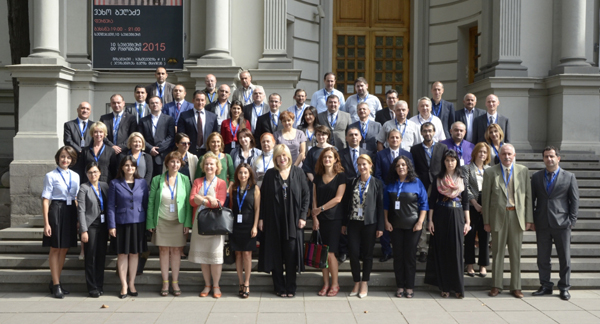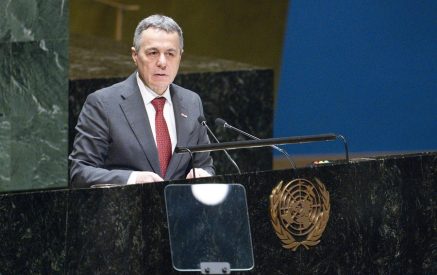12TH SOUTH CAUCASUS MEDIA CONFERENCE
Digitalisation for Freedom of the Media
29-30 September 2015, Tbilisi, Georgia
RECOMMENDATIONS
Read also
This document summarizes recommendations of more than 60 journalists, representatives of government, civil society and academia from Armenia, Azerbaijan and Georgia, along with international experts and participants from Slovenia, Bosnia and Herzegovina, Germany and Denmark at the 12th annual South Caucasus Media Conference, organized by the Office of the OSCE Representative on Freedom of the Media on 29-30 September 2015 in Tbilisi, Georgia.
The conference focused on the role of regulatory authorities in a digital environment and how to improve pluralism and media freedom in the context of the digital switchover.
The conference participants agreed that:
- The digital switchover of terrestrial broadcasting goes far beyond a mere technological change. It represents a clear and important opportunity to improve media pluralism and access to different programme formats and sources of information. The digital switchover has clear implications for the advancement of democratic values and principles. The completion of the transition from analogue to digital terrestrial broadcasting should be a high priority in media policy for governments and other state institutions and must be fully achieved as soon as possible with full and effective protection of freedom of expression and freedom of the media. Citizens should be informed about the progress and end date of the implementation.
- Media regulators should play an essential role in the new digital communications environment, particularly vis-à-vis the protection of pluralism and safeguarding free expression, free media and access to information.
- Digitalization policies and regulations need to particularly take into consideration the important role that regional and local broadcasters play vis-à-vis their respective communities.
- The independence of media regulators should be guaranteed and respected by all state and media members to avoid undue political or economic interference. The enactment of an adequate legal environment, together with a financial scheme which properly preserves such independence, is a key element.
- The independence of media regulators in the licensing process should be recognized and protected to guarantee fair, open and transparent broadcasting and create a pluralistic media landscape. Such processes should be guided by clear and pre-established procedures and criteria.
- Media regulators should act in a transparent and accountable manner under judicial supervision.
- Regulation of new media such as online, stream TV and on-demand audiovisual services should be guided by a proportional and light-touch approach, in line with European standards.
- Public service media should play a key role in the guarantee of a plural and diverse media environment after the completion of the digital switchover. This role has been agreed to and promoted in the Recommendations of the 11th South Caucasus Media Conference.
- New forms of journalism, also known as open or citizen journalism, which emerge as a result of media digitalization, should fully enjoy the same rights and protection as traditional media, as freedom of expression is protected in traditional and new media platforms.
- States should adopt adequate legislation for the protection of intellectual property rights in the digital era, with full respect of the rights to freedom of expression and freedom of the media.
- Effective self-regulatory instruments should be introduced and strengthened to facilitate a flexible and non-intrusive framework vis-à-vis rights and responsibilities in the digital media environment.
- The OSCE Representative on Freedom of the Media should assist participating States in the completion of the digital switchover and the implementation of appropriate policies and regulations in order to strengthen freedom of expression and freedom of the media as well as pluralism.
- Propaganda for war and hatred in the digital world should be properly addressed by States, according to international standards.

























































